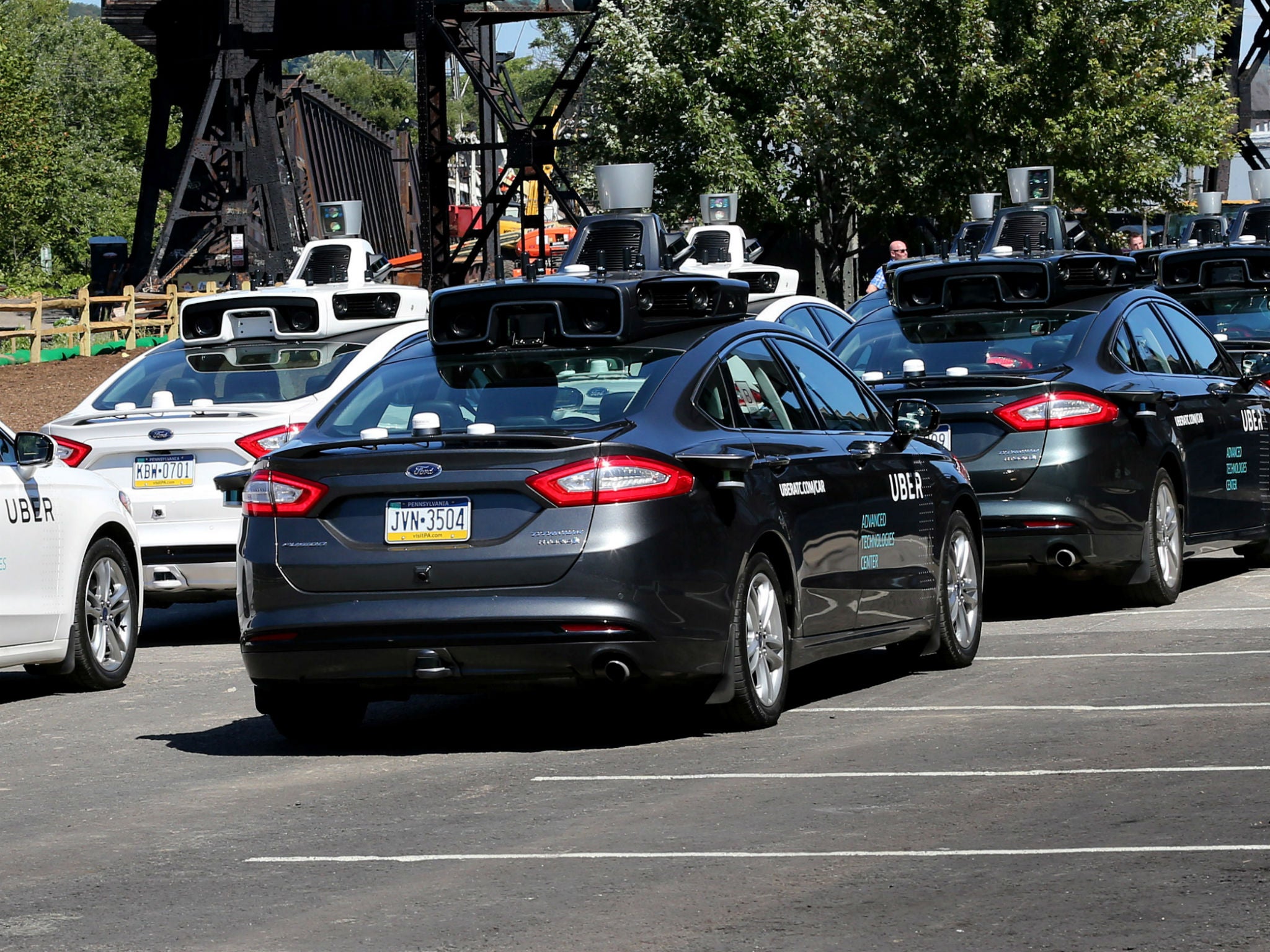Uber will halt autonomous vehicle testing in California after fatal Arizona crash
Company won't seek a permit to continue conducting tests

Uber does not plan to continue testing autonomous cars in California as it faces fallout from one of its self-driving vehicles killing a pedestrian in Arizona.
While Uber announced shortly after the accident that it would suspend its autonomous vehicle testing nationwide, a letter from the California Department of Motor Vehicles (DMV) relayed the raid-hailing giant’s plans to discontinue testing in California for the foreseeable future.
“Uber has indicated that it will not renew its current permit to test autonomous vehicles in California”, says a letter from deputy DMV director Brian Soublet to Uber.
The company’s authority to drive autonomous cars on public roads in California, first granted last March, expires at the end of this month.
If it wants to secure a new permit after that, Mr Soublet wrote, the company “will need to address any follow-up analysis to investigations” from the Arizona crash.
“We decided to not reapply for a California DMV permit with the understanding that our self-driving vehicles would not operate on public roads in the immediate future”, an Uber spokesperson said in a statement.
The death of 49-year-old Elaine Herzberg, who was struck by a self-driving Uber vehicle earlier this month as she crossed the road in Tempe, Arizona, has scrambled Uber’s plans to extend its transportation empire with fleets of self-driving cars.
Authorities in Arizona are still investigating the cause of the crash which occurred despite a human backup driver sitting at the vehicle’s wheel.
But the accident, which is believed to be the first time a pedestrian was killed by a self-driving car, has spurred a wave of questions about the readiness and reliability of self-driving car technology.
Arizona Governor Doug Ducey, who has sought to position his state as a laboratory for autonomous cars, sent Uber a letter barring it from testing in Arizona and suggesting the company failed to prioritise public safety.
“I found the video to be disturbing and alarming”, Mr Ducey said in reference to footage of the collision, “and it raises many questions about the ability of Uber to continue testing in Arizona”.

Uber’s decision to pull back in California comes a month after the state said it would begin offering permits to test autonomous vehicles without backup drivers. DMV director Jean Shiomoto touted the change as “a major step forward for autonomous technology in California”.
Since Uber won permission to test its cars on California roads, state records show one of its cars was involved in a minor collision. The car was rear-ended in August after a human operator disengaged the car’s systems to wait for pedestrians in San Francisco. No injuries were reported.
As technology and automotive companies seek to expand their self-driving car projects - Google spin-off Waymo just announced it was partnering with BMW Jaguar Land Rover to produce a fleet of up to 20,000 autonomous cars - accidents pose regular tests for the technology.
On the same day that the DMV sent its letter to Uber, the National Transportation Safety Board confirmed it was investigating a fatal Tesla crash last week in which the car's automated control system may have been engaged.
Join our commenting forum
Join thought-provoking conversations, follow other Independent readers and see their replies
Comments
Bookmark popover
Removed from bookmarks